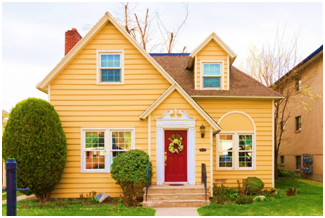Who Is Buying Homes in 2020?
As soon as you make the decision to move, you should sell your home. Experts generally advocate for selling sooner rather than later because it is almost impossible to predict real estate market conditions beyond a year or so, and you don’t want to risk home prices dropping or some other economic downturn. Though 2020 isn’t a record-breaking year for residential real estate prices, it is a familiar market that should make selling your home comfortable and straightforward.
Still, if you want to sell soon and without any hiccups, you will need to make your home enticing to 2020 buyers. But — who is buying houses these days, and what do they want from your property?
Millennials
Too many members of the baby boomers and gen-x believe that millennials are only just entering adulthood. In truth, the youngest millennials are 25, and the upper range of the generation are rapidly approaching 40; most are in their late 20s and early 30s. Despite economic hardship throughout their young adulthood, millennials are finally beginning to take steps toward home ownership.
Millennials tend to be picky homebuyers, unwilling to invest in a property that doesn’t meet their high standards. As among previous generations, millennials view their properties as status symbols, but what signifies high status to this generation is slightly different than you might expect. In general, millennial homebuyers are focused on these real estate trends:
· Sustainable design. Millennials want their homes to have a low impact on the environment and want to eliminate energy and material waste. In translation, millennials want eco-friendly elements like dual-pane windows, energy-efficient appliances and energy alternatives like solar panels.
· Low maintenance. Millennials don’t have the time to devote to gaining the handiness skill and caring for their homes, but they also don’t have the money to waste on home services. Thus, they need properties that don’t require much attention — that have recently been updated and lack fussy fixtures.
· Quality neighborhood. Location has always been important in real estate, but it is especially important to millennials, who want their surrounding neighborhood to offer top-tier amenities. Specifically, they want the area to be quiet and safe but walkable and with access to green spaces.
· Comfort. This is the x-factor that will vary from millennial to millennial. Often, comfort entails an open floor plan for shared spaces like kitchens, dining and living rooms, but it could also mean specialty rooms like home theaters, home gyms or separated playrooms for kids. Millennials also crave the opportunity to customize their homes to their taste, which means you should try to turn your property into a blank slate.
Thanks to the Great Recession and the Student Debt Crisis — as well as stagnating wages and other economic disadvantages — millennials are buying homes much later than previous generations. Unfortunately, this has given another group the opportunity to snatch up real estate…
Investors
As millennials have struggled to scrounge up the cash to put down payments on starter homes, real estate investors have flourished, purchasing a significant portion of affordable homes. Across the country, investors have bought about 20 percent of all starter homes, and in some markets, more than 50 percent of affordable homes are investor-owned. Investors tend to buy houses with cash, which is exceedingly enticing to home sellers who want to unload their properties quickly and easily.
Sometimes, investors are beneficial to an area’s real estate market. Many investors exclusively by homes that otherwise wouldn’t sell; they improve these properties, investing in both structural and cosmetic updates, to make the home more attractive to higher-paying buyers. Sometimes this process is called gentrification, but usually it does help a community in the long term.
Unfortunately, not all investors have such positive effects. More often, investors flip houses — meaning they add low-cost cosmetic upgrades that hide more serious issues but dramatically increase the price — or they rent them, which drives down property values for an entire neighborhood. Some investors do nothing but buy up cheap properties and sit on them until they appreciate, which can take homes off the market for years. Generally, investors don’t care much about the size or quality of a property; they only care about its likelihood to increase in value.
There are pros and cons to attracting either of the two most dominant home buying groups. It takes a lot to allure a millennial, but improving the quality of your property is never a waste. You will probably get more out of your investment by making the updates that millennials prefer than you would by cashing out with a real estate investor. However, investors do tend to make a home sale easy. How you plan for your home sale will depend on your financial situation.




